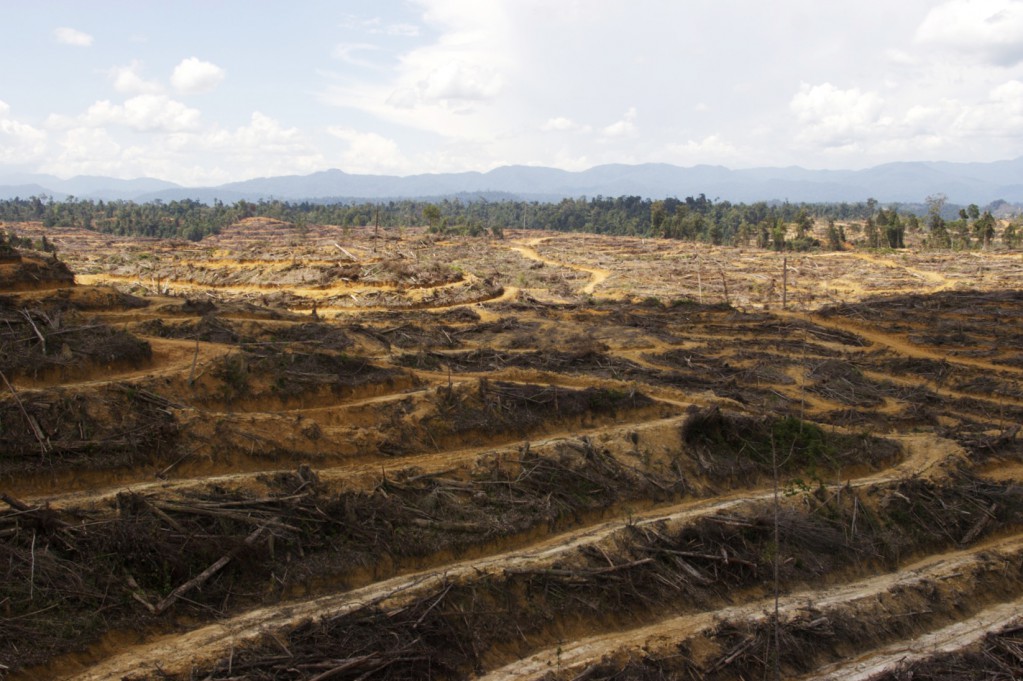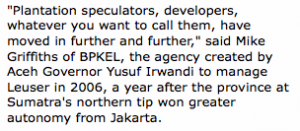Reuters ran a story this week on illegal palm oil development in Aceh, Indonesia.
The story takes an interesting angle, completely ignoring the massive scale of legal oil palm development in Aceh and focusing in on illegal planting by small farmers or tiny companies.
With oil palm threatening to overwhelm Aceh’s Leuser Ecosystem, NGOs and certain sections of the Acehenese government are doing their best to slow the onslaught, and their efforts to team up with Acehenes police to cut down illegal palm is interesting, but it is not the most important story there for either forests or forest peoples.
Aceh, one of Indonesia’s least developed and isolated provinces, is facing one of the fastest expansions of oil palm in the world; Aceh is just a hundred miles from Malaysia, the world’s most technically advanced nation when it comes to destroying biodiverse rainforests to plant oil palm, and it is just emerging from a 30 year civil war that kept the province off limits to previous oil palm development.
Now, Aceh is faced with a flood of land speculators, signing deals with currupt low level politicians for access to land that has been designated as off limits to oil palm development. As the Reuters story quotes:
The Acehnese Ministry of Agriculture has called for more than a million hectares of oil palm expansion in the province. To give you an idea of the scale of that potential expansion, the Leuser Ecosystem of Aceh is one of the world’s largest remaining intact tropical forests at 2.5 million hectares.
The article seems content to focus on the estimated 40,000 hectares of illegal palm in Aceh, which is a shame considering the massive scale of oil palm development around the province.
But at least the story does end with an acknowledgment of the basic problem with oil palm in Aceh:
A simple statement from an Acehnese forest conservationist that sums it all up.
David Gilbert is a Research Fellow at RAN. He has worked in the tropical forests of the Amazon and Indonesia, with a special focus on forest conservation and indigenous rights. He can be reached at davidgilbert@ran.org


